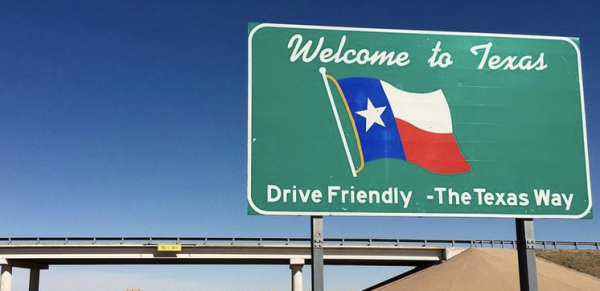Is Gambling Legal in Texas? A Comprehensive Guide to the Lone Star State's Gambling Laws
Gambling laws in the United States can be complex, and Texas is no exception. The state’s history, culture, and legal framework have created a unique environment where gambling is highly restricted but not entirely absent. This article provides an in-depth look at the current status of gambling in Texas, exploring what is legal, what isn't, and what the future may hold for gambling enthusiasts in the Lone Star State.
A Brief History of Gambling in Texas
Texas has a long history of gambling, dating back to the days of the Old West. In the 1800s, saloons and riverboats were common venues for games of chance. However, as the state modernized, so did its laws. By the early 20th century, Texas had largely outlawed gambling, reflecting a broader national trend toward prohibition and regulation of vice activities.
Despite its historical roots, Texas has maintained a conservative stance on gambling. The state’s constitution explicitly prohibits most forms of gambling, a reflection of the strong influence of religious and social conservatives.
What Forms of Gambling Are Legal in Texas?
1. State Lottery
One of the most prominent forms of legal gambling in Texas is the state lottery. Established in 1992, the Texas Lottery offers a variety of games, including scratch-off tickets and draw games like Powerball and Mega Millions. The revenue generated from the lottery primarily supports public education, with a significant portion also going toward veterans' services.
2. Charitable Bingo and Raffles
Charitable bingo and raffles are another form of legal gambling in Texas. Nonprofit organizations can apply for licenses to conduct bingo games and raffles as fundraising activities. The proceeds from these events must go toward charitable causes, and the state imposes strict regulations to ensure compliance.
3. Pari-Mutuel Betting
Pari-mutuel betting on horse and greyhound races is legal in Texas, although the industry has declined significantly in recent years. The state allows licensed racetracks to operate and offer betting on live races as well as simulcast races from other locations. However, the number of active tracks has dwindled, and attendance at races has decreased, leading to concerns about the future of the industry.
4. Social & Sweepstakes Casinos
Social and sweepstakes casinos are another legal option for Texans seeking to enjoy casino-style games without violating the state's gambling laws. These platforms operate under sweepstakes laws, meaning no purchase is necessary to participate. Players can engage in a variety of games, such as slots and poker, using virtual currency.
The key distinction is that these platforms are not classified as gambling sites because they don't require players to spend real money to play. However, many social and sweepstakes casinos do offer the opportunity to win real money prizes, making them attractive to those who enjoy gaming but are cautious about breaking the law. This aspect has led to the emergence of "real money social casinos," where players can potentially convert virtual winnings into real cash payouts. Because of their legal structure, these platforms have become increasingly popular, offering a way to experience the thrill of casino gaming in a legal and regulated manner.
What Forms of Gambling Are Illegal in Texas?
1. Commercial Casinos
Unlike neighboring states like Louisiana and Oklahoma, Texas does not permit commercial casinos. The state’s constitution explicitly prohibits casino gambling, and repeated attempts to legalize it through legislation or voter initiatives have failed. As a result, many Texans travel to nearby states to visit casinos.
2. Online Gambling
Online gambling, including poker and sports betting, is illegal in Texas. The state’s laws do not specifically address online gambling, but existing statutes against gambling are interpreted to apply to online activities as well. As a result, residents who participate in online gambling do so at their own risk, and there are no legal protections for them if disputes arise.
3. Sports Betting
In the wake of the 2018 Supreme Court decision that struck down the federal ban on sports betting, several states have legalized the practice. However, Texas is not among them. The state has yet to pass legislation allowing sports betting, and efforts to do so have faced significant opposition. Proponents argue that legalizing sports betting could generate substantial revenue for the state, but opponents cite concerns about addiction and the potential for corruption.
The Future of Gambling in Texas
The future of gambling in Texas is uncertain. While there have been ongoing efforts to expand legal gambling in the state, these efforts have been met with strong resistance from various political and social groups. In recent years, there has been renewed interest in legalizing sports betting and expanding casino gaming, particularly in light of the potential economic benefits. However, any changes to the state’s gambling laws would require a constitutional amendment, which would need to be approved by a two-thirds majority in both houses of the Texas Legislature and then by a majority of voters in a statewide referendum.
Recent Developments
As of 2024, the most recent legislative session saw several bills introduced that would have expanded gambling in Texas, including proposals to legalize sports betting and allow for the establishment of commercial casinos. Despite the growing support, these bills did not pass, reflecting the ongoing challenges faced by proponents of gambling expansion. However, the conversation is far from over, and it is likely that similar efforts will continue in future sessions.
We Will Close With This
Gambling in Texas is a complex and often contentious issue. While some forms of gambling are legal, the state has maintained a conservative approach that limits the availability of gambling options compared to other states. The future of gambling in Texas remains uncertain, with ongoing debates and legislative efforts likely to continue in the coming years. For now, Texans who wish to gamble legally must do so within the confines of the state’s limited options or travel to nearby states where more extensive gambling opportunities are available.
Sources:
- Texas Lottery Commission. "About Us." Accessed August 2024.
- Texas Charitable Bingo Operations Division. "FAQs on Charitable Bingo." Accessed August 2024.
- Texas Racing Commission. "Annual Reports and Statistics." Accessed August 2024.
- Indian Gaming Regulatory Act, Public Law 100-497, 25 U.S.C. § 2701 et seq.
- Texas Constitution. Article III, Section 47. Accessed August 2024.
- Texas Legislature Online. "Bills and Resolutions Search." Accessed August 2024.
- SCOTUS. Murphy v. National Collegiate Athletic Association, 584 U.S. ___ (2018). Accessed August 2024.
|
|















